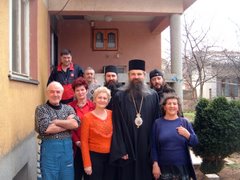Voinovich Resolution on Serbia passes the Senate
Voinovich Resolution on Serbia passes the Senate
FOR IMMEDIATE RELEASE: January 17, 2006Contact: Chris Paulitz or Garrette SilvermanWASHINGTON, D.C.
- A resolution introduced by U.S. Senator George V. Voinovich (R-OH) expressing support for democratic forces in Serbia and encouraging the nation's commitment to a democratic path passed unanimously today in the U.S. Senate. The resolution recalls Serbia's historic fight for democracy and its September 2000 ousting of then-President Slobodan Milosevic, and pledges American support of Serbia's commitment to democracy as they move toward Parliamentary elections on January 21, 2007. It is co-sponsored by Senators Joe Lieberman (D-CT), Richard Lugar (R-IN), and Chuck Hagel (R-NE). The people of Serbia went to the streets and voiced their cry for freedom. They have come a long way since their historic transition, Sen. Voinovich said. This resolution affirms that the U.S. Senate is proud of Serbia's struggle and we support Serbia's commitment to stay on this path, despite the many challenges they continue to face today. We are good friends and we will remain so as the people of Serbia continue their fight for a better future.
In the resolution, Sen. Voinovich commends Serbia's advance toward progressive hallmarks-the rule of law, a free-market economy, and human and minority rights-and underscores the nation's current efforts, citing President Boris Tadic's public commitment to integration with Euro-Atlantic institutions and Serbia's inclusion of Albanian parties in elections for the first time in fifteen years. "A strong, stable, and democratic Serbia is critical to the future of the region", Sen. Voinovich said. The people of Serbia deserve American support through this critical stage of political maturity.
The resolution expresses the sense of the Senate that the United States should have a strong relationship with Serbia as it pursues its goals of membership in the EU, cooperation with NATO, and increased defense and security cooperation with the Serbian government. It also calls on Serbia to continue its progress on judicial, defense, and civil rights reforms, and to fulfill its obligation to the International Criminal Tribunal by arresting and extraditing known war criminal Ratko Mladic-a crucial condition for its EU and NATO membership. After widespread street protests in September 2000, Milosevic conceded power to the Democratic Opposition of Serbia, a broad coalition of parties that claimed he committed fraud in the federal election.

















